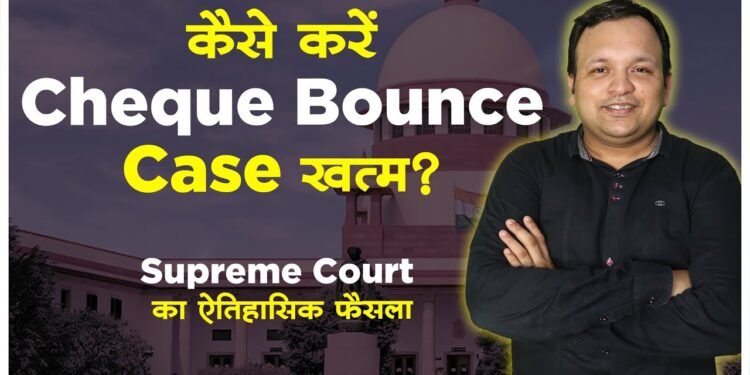Introduction:
In cases of bounced cheques, sending a legal notice prior to initiating legal proceedings is a crucial step. However, even a minor error in the legal notice can render it invalid, consequently jeopardizing the entire cheque bounce trial. Recently, the Supreme Court invalidated a trial due to improper sending of the legal notice. Whether you are the complainant intending to send a legal notice or the accused party receiving one, it is imperative to understand the intricacies involved. Watch this video till the end for comprehensive insights.
To learn more about the topic, read the blog till the end, and if there lies any more doubt, feel free to reach out to us at; https://thelegalshots.com/legal-opinion/
Case Overview:
In the case of UPASANA MISHRA VERSUS TREK TECHNOLOGY INDIA PVT. LTD., a dispute arose over outstanding payments between the involved parties. Upashna Mishra issued a cheque to settle the dues, which subsequently bounced. In response, the company sent a legal notice, following standard protocol for bounced cheques. However, Mishra contested the legal validity of the notice, leading to the company filing a complaint against her in the competent court. Mishra challenged the summoning order issued against her in the Delhi High Court, arguing that the entire cheque bounce case was invalid due to deficiencies in the legal notice. Despite her efforts, the Delhi High Court dismissed her petition, prompting Mishra to appeal to the Supreme Court.
Supreme Court Findings:
During the Supreme Court proceedings, Mishra contended that the legal notice lacked validity, thus questioning the legality of the subsequent complaint filed against her. Citing a landmark 2002 judgment, Mishra emphasized the necessity of clarity regarding the cheque amount in the legal notice. She argued that the notice erroneously demanded a sum of Rs. 6.5 lakhs, contrary to the cheque amount specified. The Supreme Court concurred with Mishra’s argument, asserting that the discrepancy invalidated the notice and consequently nullified the complaint. The Court overturned the orders passed by the Delhi High Court and the magistrate, directing them to refrain from pursuing any further legal actions against Mishra.
Conclusion:
This case underscores the importance of precision in legal notices, particularly concerning the cheque amount. Failure to adhere to this requirement can lead to the invalidation of the notice and subsequent legal proceedings. Therefore, it is essential to ensure that legal notices accurately reflect the specifics of the case to avoid potential legal setbacks.
To understand more such complex law in simple ways, stay connected with www.thelegalshots.com .
If doubts still persist, contact our Legal Experts at https://thelegalshots.com/legal-opinion/




